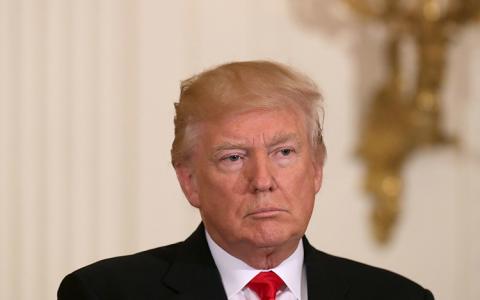
The U.S. job market recovery appears to be starting to stall, threatening President Donald Trump's narrative of a rapid American comeback and a quickly declining unemployment rate headed toward the November election.
The July jobs report on Friday morning showed a gain of 1.8 million, an impressive number in ordinary times but well below the 4.8 million created in June. A measure of private payrolls this week showed a gain of just 167,000 jobs in July, dramatically below the expected 1.2 million.
The Covid crisis that slammed the U.S. in March and shuttered much of the economy wiped out tens of millions of jobs, erasing gains from the last decade and digging a hole that may take years to escape. And the pace of hiring slowed in recent weeks amid a rise in Covid cases in many states and deep uncertainty among employers about whether and when to bring back laid off or furloughed workers.
“The economy has largely gone sideways since mid-June, as the re-intensification of the virus has forced about half the nation’s states to either backtrack or pause their business reopenings,” said Mark Zandi, chief economist at Moody’s Analytics. “It is critical that lawmakers agree to another substantial fiscal rescue package before Congress goes away on its August recess for the fragile economy to avoid backsliding into recession.”
Some analysts believe the real hit from the latest Covid flareups may not show up until the August employment numbers come out in early September. Either way, economic data suggest hiring is slowing down.
"Millions are holding onto the hope that their jobs and former way of life before the coronavirus will still be there and they can be called back from furlough by their employers and go to work," said Chris Rupkey, chief financial economist at MUFG Union Bank. "Today's jobs report limits the hopes of many for better days ahead."
White House economic adviser Larry Kudlow downplayed the slowing pace of job creation, attributing it to coronavirus hotspots flaring in the Southwest just as the Labor Department was surveying workers in the middle of July.
"We didn't get hurt near as much as many people feared," Kudlow said Friday during an interview on CNN. He predicted that the unemployment rate will fall into single digits "as we move through the summer and into fall."
Much of July's new hiring came in the hospitality industry, as restaurants and bars re-opened, and in retail. But the number of unemployed workers is still up almost 11 million from February. Economists said that makes it crucial for lawmakers to agree on a new relief package.
Another round of fiscal aid is "absolutely critical to the economy," said Joseph Brusuelas, chief economist at financial consulting firm RSM U.S, "If the talks fail, the political sector is creating the conditions for at best a double dip recession or much longer downturn than would occur otherwise.”
As of now, prospects for a deal out of Congress seem dim. Members left town this week with no agreement and the White House is now talking about trying to push through executive orders to extend further economic relief measures including a controversial effort to unilaterally expand enhanced jobless benefits that expired at the end of last month.
Democrats want those benefits maintained at an extra $600 per week while Republicans initially offered an additional $200 per week, or 70 percent of a person’s previous salary. Despite job gains in recent months, more than 32 million Americans received some type of unemployment insurance in the week ended July 18, a figure that represents about 20 percent of the entire American labor force.
The concern among economists is that if the rate of rehiring really does slow down, the absence of extra relief measures will further erode consumer confidence and spending and then make employers even less likely to hire, given the drop in demand.
That’s the kind of self-reinforcing cycle that could turn the current recovery into a double-dip recession. And a poor jobs report on Friday could finally start to dent a remarkably resilient stock market that has regained most of the ground lost after Covid hit the U.S., partly due to extraordinary interventions by the U.S. Federal Reserve to provide easy credit and the multiple economic aid packages from Congress.
Consumer confidence as measured by the Conference Board sank in July to a reading of 92.6, above the crisis-low of 85.7 but well below the 132.6 hit in February, a near 20-year high.
“The out-of-control pandemic has also further spooked consumers, particularly baby boomers in their 50s-70s who are particularly fearful for their health,” said Zandi. “Businesses are also reluctant to meaningfully expand their operations given the over-the-top uncertainty created by the pandemic. The economy is unlikely to go anywhere fast until the pandemic is over; that is, there is an effective vaccine that is widely distributed and adopted.”
Trump on Thursday suggested a vaccine could be ready in time for the November election, a timetable at odds with most expert opinion. Most experts including Anthony Fauci, the top U.S. infectious diseases official, say a vaccine is not likely to clear trials until sometime next year.
And the pace of hiring — along with Trump’s reelection prospects — will likely track the path of the virus and availability of treatments.
“The labor market is improving once again but at a pace that will still warrant further stimulus,” Edward Moya, senior market analyst at currency trading firm OANDA, said in a note to clients. “The snapshot of the economy shows improvements that coincide with the trajectory of the virus. In July, the second wave states saw reopenings hit a roadblock, which should imply that the labor market will improve as the virus spread continues to slow.”
This article originally appeared on Politico.



